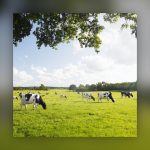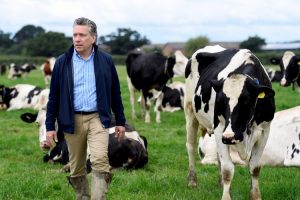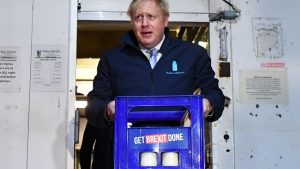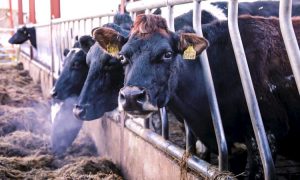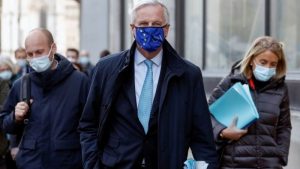
With speculation growing that regulatory standards in the UK could drop after Brexit, dairy farmer Andrew Le Gallais has said he is concerned about the future export potential of his sector. He told the JEP that the industry ‘hangs its hat’ on being aligned to high EU standards and the global clout of the trading bloc.
And he warned that most of Jersey’s industries were geared towards being high standard and high value, so could suffer similar consequences.
UK Prime Minster Boris Johnson’s recently proposed withdrawal agreement was criticised for potentially leading Britain towards deregulation and lower product standards.
And concerns have long been voiced about a potential trade deal being signed with the US, which has low regulation in many of its sectors, including agriculture.
Mr Le Gallais said he was ‘massively’ concerned about such a deal happening and believed that his sector had benefitted from Jersey’s access and alignment to the EU single market under ‘protocol 3’ of the UK’s accession agreement.
‘We wouldn’t be able to export milk to places like the Far East, like we do, unless we had a very special product,’ he said.
‘We are an expensive island and we have to add value to anything we produce to sell it, whether it’s a financial service, whether it’s bed for a hotel, a potato, a cow or a dairy product.
‘I think we are taking this for granted but this is absolutely fundamental to every aspect of the Island’s economy and to achieve that we need to have a set of standards that is better than others in an international context.
‘What protocol 3 has enabled us to do is maintain our trading relations with the UK and because we have adhered to, often draconian, European protocols, it has given us a passport for exporting products to the Far East.
‘As a farmer I’m very concerned that those compliance standards in the UK might change post Brexit.’
According to a report produced by the government in 2017, Jersey dairy farmers export around £3.4 million worth of milk annually, 29% of which goes to the Far East.
Mr Le Gallais explained that he felt Jersey may need to make a choice between aligning itself with the UK or the EU because the Island is too small to be able to market itself on its own set of regulatory standards in the global marketplace.
‘We don’t know where we are going to go and what will happen, but we have had this overarching umbrella which has allowed us to export high-quality products right across the spectrum,’ he said.
‘But the structure which allows us to do that is going to change and we are going to have to hang our hat on something. As a dairy farmer I would be very disappointed if that was compromised.
‘I’m not trying to stoke anything up but I think government are acutely aware of this. All of Jersey’s different industries are in this together because we have a reputation to maintain. It could be very exciting times for us – but in more ways than one.’
He added: ‘How autonomous we can become is what it’s all about. It would be nice to think that we could have a special set of quality rules that are unique to Jersey, but that’s a big ask and is bluntly going to be impractical – we are going to need to hang our hat on something.’
Mr Gallais said that he felt that the work carried out by the External Relations Department on Brexit had been ‘first rate’ and was confident the Island’s diplomats would deliver a solution if necessary.
Earlier this month, External Relations group director Kate Nutt said that Jersey may need to choose between aligning itself with the UK or EU in terms of how its exports are regulated, depending on how far the UK ‘diverges’ from the EU.

